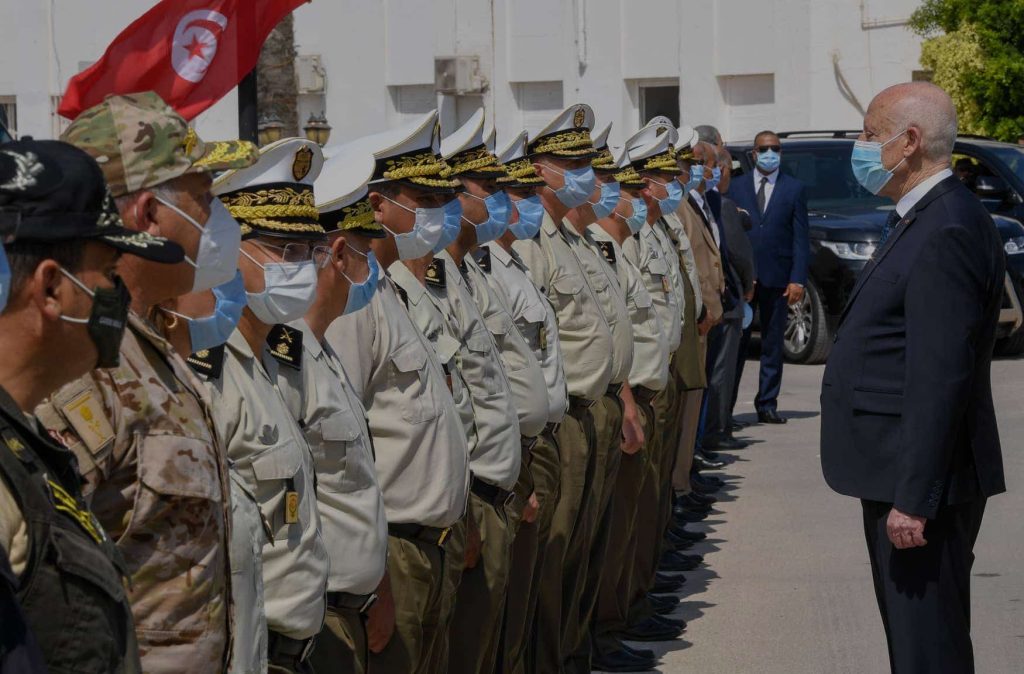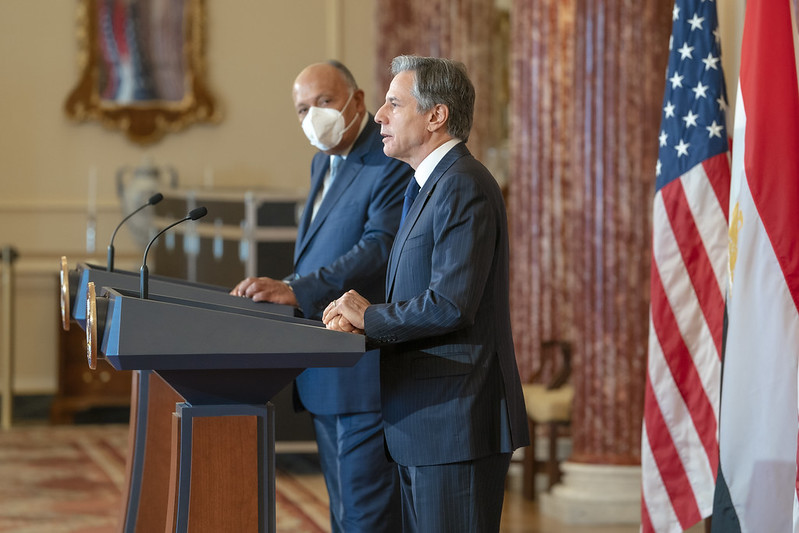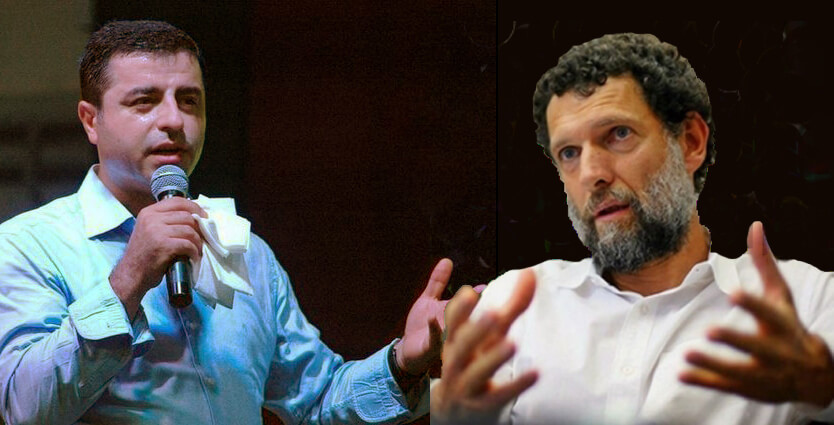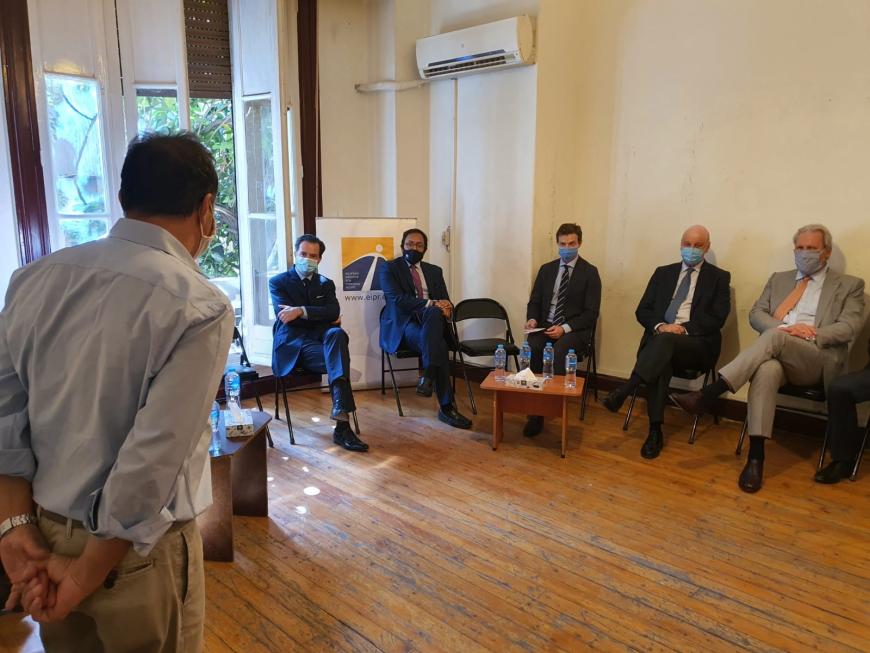


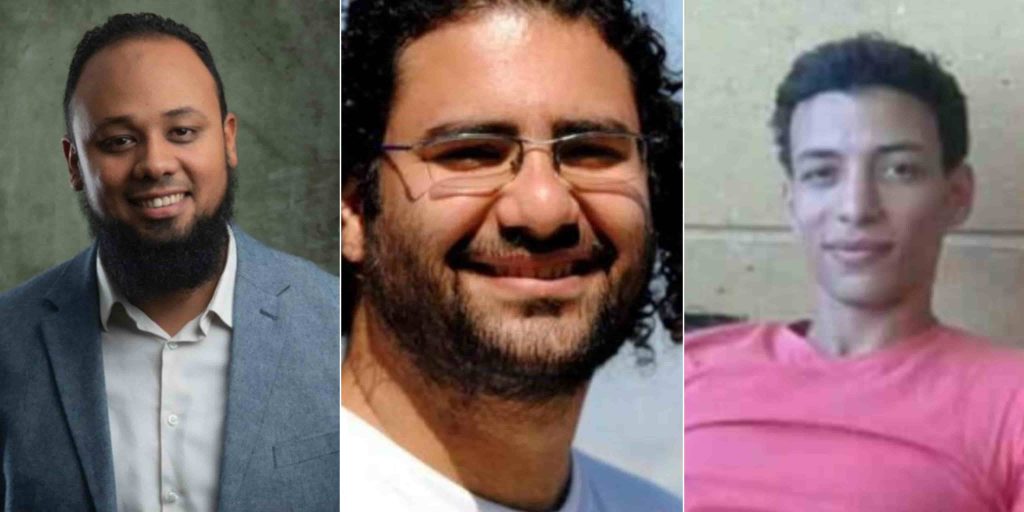
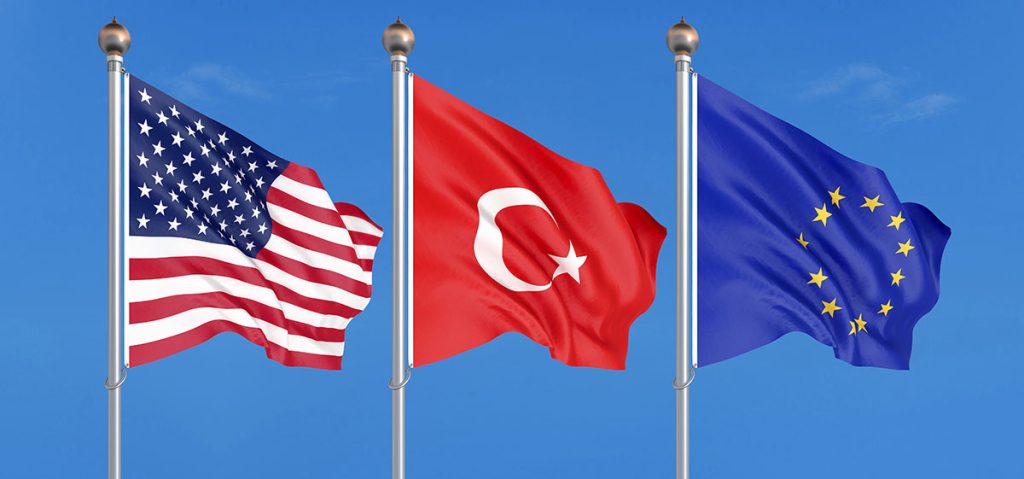
In recent years, Turkey’s authoritarian slide has raised concerns among its Western allies and complicated international efforts to support democracy and human rights there. The Biden administration pointedly excluded Turkey from its December 2021 Summit for Democracy, signaling that it does not currently view Turkey as part of the international community of democracies. President Recep Tayyip Erdoğan openly defies global human rights institutions like the Council of Europe and flatly rejects calls from allies like the United States to restore the rule of law and return to a path of democratization. The deterioration of Turkey’s ties with key transatlantic democracies and institutions, coupled with the rise of nationalism in Turkish politics, has brought new challenges to Western support for Turkish civil society. Turkey’s worsening economic crisis and growing political uncertainty will make the terrain for international support for democracy and human rights more complex.
Yet despite these difficulties, the United States and European democracies can and should play a valuable role in advancing democratic values and human rights in Turkey, especially at a pivotal time for the country. Please join the Project on Middle East Democracy (POMED) for an event examining why the United States and Europe should do more to help Turkish democracy and human rights and assessing the best ways to do so.

Osman İşçi is the International Affairs Secretary of the Human Rights Association (İHD), one of Turkey’s oldest and most prominent independent human rights organizations, and President of the Human Rights Academy, an İHD initiative. A leading human rights defender, Osman is a member of the EuroMed Human Rights Network (EMHRN) and a member of the World Organization Against Torture’s general assembly. Osman has worked with numerous rights groups in Turkey. In 2017, he was awarded the Human Rights Award by the Austrian League of Human Rights.
 Merve Tahiroğlu is POMED’s Turkey Program Coordinator. Prior to joining POMED in September 2019, Merve was a research analyst at the Foundation for Defense of Democracies, where she focused on Turkey’s domestic politics, foreign policy, and relationship with Washington. She has authored several monographs and published articles in outlets such as Foreign Affairs, Washington Post, Wall Street Journal, Foreign Policy, Politico, and Huffington Post.
Merve Tahiroğlu is POMED’s Turkey Program Coordinator. Prior to joining POMED in September 2019, Merve was a research analyst at the Foundation for Defense of Democracies, where she focused on Turkey’s domestic politics, foreign policy, and relationship with Washington. She has authored several monographs and published articles in outlets such as Foreign Affairs, Washington Post, Wall Street Journal, Foreign Policy, Politico, and Huffington Post.
 Özge Zihnioğlu is a lecturer at the University of Liverpool’s Department of Politics. Her research focuses on Turkish civil society, activism, EU-Turkey relations, and EU civil society support. She is the author of EU-Turkey Relations: Civil Society and Depoliticization (Routledge, 2020) and European Union Civil Society Policy and Turkey: A Bridge Too Far? (Palgrave Macmillan, 2013). She is a member of the Carnegie Endowment for International Peace’s Civic Research Network, and an executive committee member of Turkey’s Young Academy Working Group.
Özge Zihnioğlu is a lecturer at the University of Liverpool’s Department of Politics. Her research focuses on Turkish civil society, activism, EU-Turkey relations, and EU civil society support. She is the author of EU-Turkey Relations: Civil Society and Depoliticization (Routledge, 2020) and European Union Civil Society Policy and Turkey: A Bridge Too Far? (Palgrave Macmillan, 2013). She is a member of the Carnegie Endowment for International Peace’s Civic Research Network, and an executive committee member of Turkey’s Young Academy Working Group.
 Amy Hawthorne (moderator) is POMED’s Deputy Director for Research. Before joining POMED in 2015, Ms. Hawthorne was a senior fellow at the Atlantic Council’s Rafik Hariri Center for the Middle East. In 2011-12, she served as Senior Advisor and then Egypt Coordinator in the Near Eastern Affairs Bureau at the Department of State. Her other previous positions include executive director of the Hollings Center for International Dialogue in Istanbul and Washington, D.C., fellow at the Carnegie Endowment for International Peace, and senior program officer for the Middle East at the International Foundation for Electoral Systems.
Amy Hawthorne (moderator) is POMED’s Deputy Director for Research. Before joining POMED in 2015, Ms. Hawthorne was a senior fellow at the Atlantic Council’s Rafik Hariri Center for the Middle East. In 2011-12, she served as Senior Advisor and then Egypt Coordinator in the Near Eastern Affairs Bureau at the Department of State. Her other previous positions include executive director of the Hollings Center for International Dialogue in Istanbul and Washington, D.C., fellow at the Carnegie Endowment for International Peace, and senior program officer for the Middle East at the International Foundation for Electoral Systems.
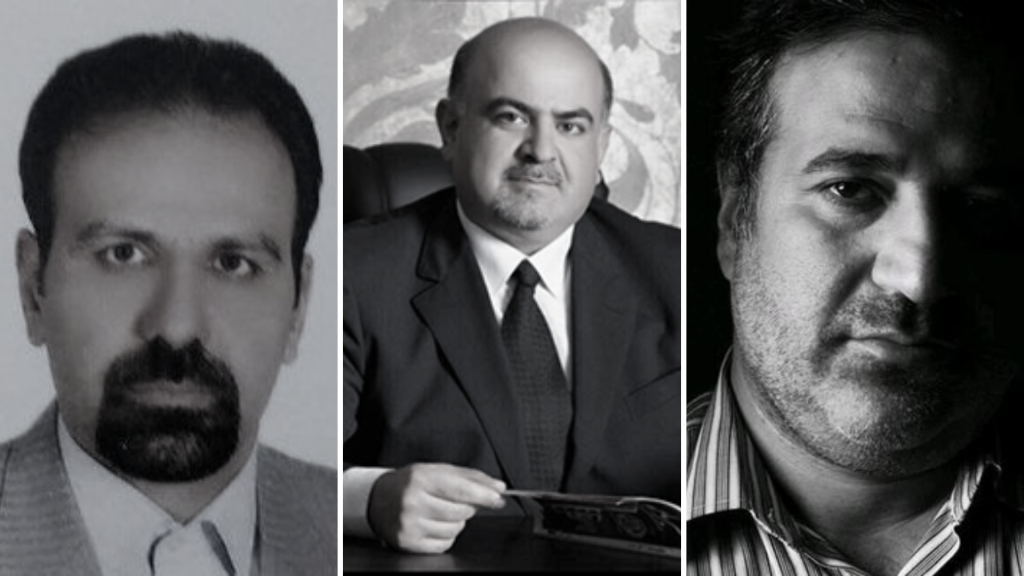
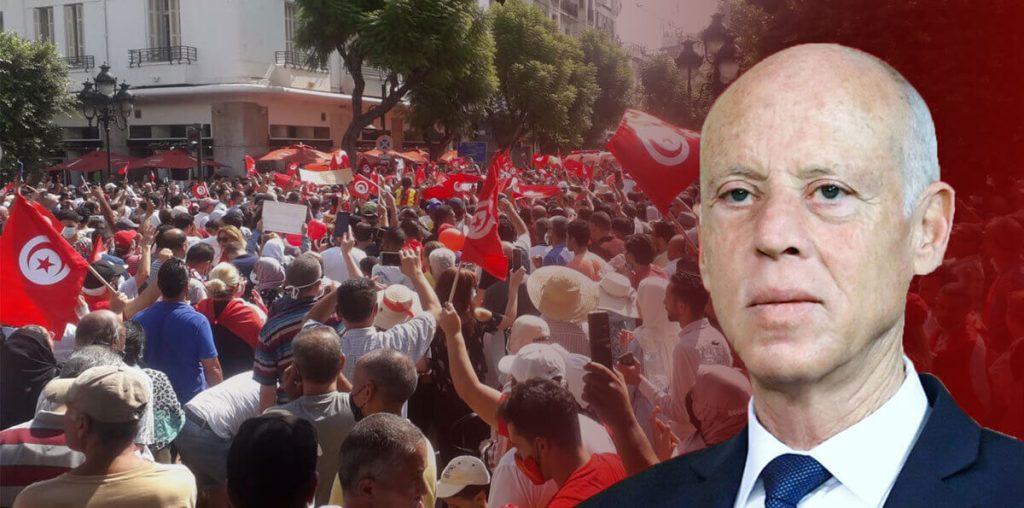
Please join us for a special event on Tunisia’s post-July 25 political landscape and possible trajectories. The first part of the event will examine President Kaïs Saïed’s governance since his power grab, the threats to Tunisia’s democracy, and the pushback against a return to autocracy. The second part will look at what role international actors, including the United States, may be able to play in shoring up democracy in Tunisia.
10 am – 11 am ET | 4 pm – 5 pm GMT +1
Panelists:
Moderator:
11 am – 11:15 am ET | 5:00 pm – 5:15 pm GMT +1
A conversation with:
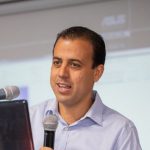
Amine Ghali is the Program Director at Al-Kawakibi Democracy Transition Center (KADEM) in Tunis. Currently he focuses on political reform, elections, and transitional justice issues. Following the Tunisian revolution, he was appointed as a member of the National Commission to Investigate Corruption, and then as a member of the National Commission on the Transitional Justice Debate.

Amna Guellali is currently Amnesty International’s Deputy Regional Director for the Middle East and North Africa. Previously, Dr. Guellali was the director of the Tunis office of Human Rights Watch, where she was responsible for research on Tunisia and Algeria in the organization’s Middle East and North Africa division, and an analyst at the Office of the Prosecutor of the International Criminal Court in The Hague.
 Monica Marks is a professor at New York University Abu Dhabi (NYUAD) and a scholar of Islamist movements, gender, and politics in the Middle East and North Africa. Her research focuses on broad topics across the region and beyond, but especially in regard to the tensions between pluralism and state power in the two countries where she’s lived longest: Tunisia and Turkey.
Monica Marks is a professor at New York University Abu Dhabi (NYUAD) and a scholar of Islamist movements, gender, and politics in the Middle East and North Africa. Her research focuses on broad topics across the region and beyond, but especially in regard to the tensions between pluralism and state power in the two countries where she’s lived longest: Tunisia and Turkey.

Amy Hawthorne (moderator) is the Deputy Director for Research at POMED. She is also the chair of the Working Group on Egypt. Prior to her work at POMED, Amy served as Resident Senior Fellow with the Atlantic Council and as an appointee at the State Department, where she worked on U.S. policy toward Egypt and Tunisia following the 2011 uprisings.

Senator Chris Murphy has been the junior U.S. Senator for Connecticut since taking office in 2013. As the chair of the Senate Foreign Relations Subcommittee on Near East, South Asia, Central Asia, and Counterterrorism, he is an outspoken proponent of democracy, human rights, and foreign policy issues in the Middle East. In 2016, Sen. Murphy received POMED’s Leaders for Democracy award.

Stephen McInerney is currently the Executive Director at POMED. Prior to joining POMED, he spent six years living, working, and studying in the Middle East and North Africa—two years each in Egypt, Lebanon, and Qatar.

